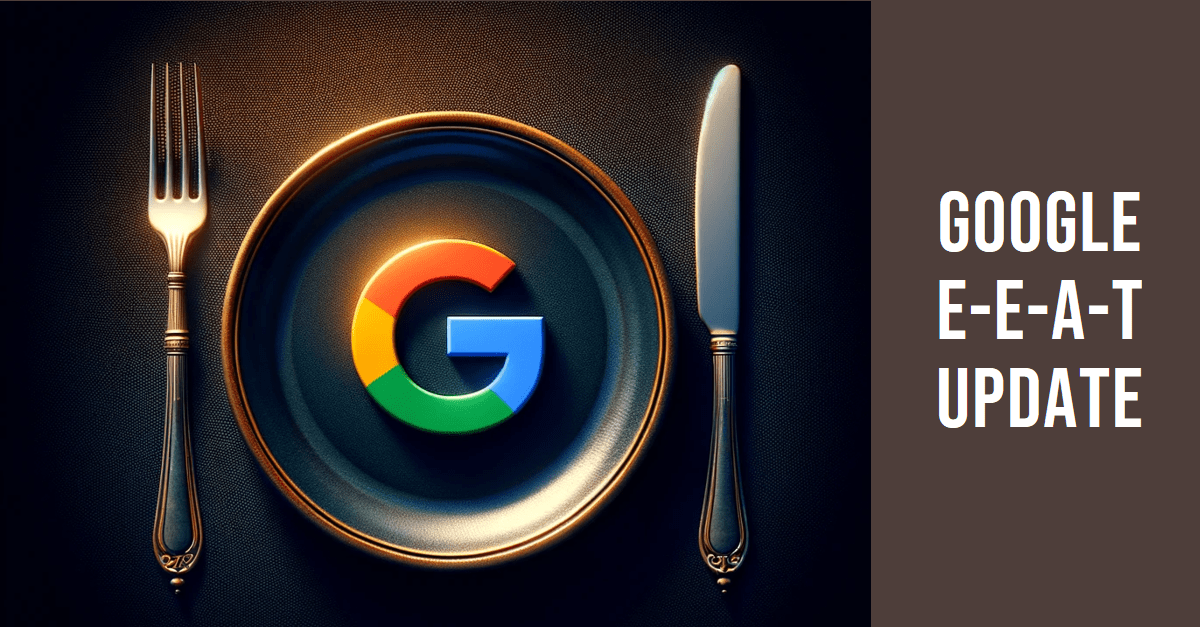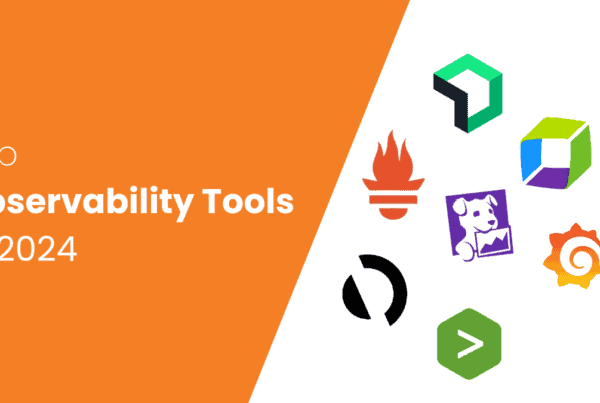
In the ever-evolving world of the internet, staying on top of search engine updates is crucial for anyone who uses the web for information or business purposes. Google, being the most widely used search engine, frequently updates its algorithms to enhance the user experience and provide more relevant search results.
In our previous article “How to focus on simple SEO strategies in 2023 and Avoid Information Overload” we also mentioned that “Google updates its algorithms about a thousand times a year. Not all of them require special attention, but some of them do require attention, known as major updates”.
The latest buzz in the digital realm is Google’s recent search engine update, and one term that’s been making waves is “E-E-A-T update” or “Double EAT update.”
Let’s delve into what this update entails and why understanding Double Eat is important for both users and website owners.
Constant Evolution of Search Engines: From E-A-T to E-E-A-T
Search engines are like digital librarians, helping us find the right information in the vast sea of the internet.
Google, the giant search engine, is making changes to how it understands and ranks websites. These changes are like a map that guides website owners, bloggers, and content creators in creating better content that meets the needs of users.
In the middle of last year, they introduced an E-A-T update but later Google added another “E” to judge content quality. This new point looks at how much the person creating the content knows about the topic from personal experience. It’s like checking if a chef has actually tasted the food they’re cooking.
What is Google’s new E-E-A-T Update?
Double E-A-T or E-E-A-T might sound like confusing tech jargon, but its essence is simple. E-E-A-T stands for Experience, Expertise, Authoritativeness, and Trustworthiness.
- Experience: This is like the years you’ve spent doing something. If your website is all about bikes, it’s better if you’ve been fixing bikes for a long time. So, share your experiences in your content.
- Expertise: Imagine you’re the go-to person for a certain thing. If you’re a chef, having a website, and people trust your recipes. Show you’re really good at what you’re talking about. Share tips and advice like a pro.
- Authoritativeness: This is like being a trusted leader. People listen to you because they know you’re reliable. So, create content that’s accurate and well-researched. If you’re talking about health, use proper sources like doctors or medical studies.
- Trustworthiness: Think of your website as a place where everyone knows they’re getting honest stuff. Always tell the truth and don’t spread rumors or false information.
Google explains E-E-A-T in a new way, showing that “experience” is really important. They say that the concept’s heart is “trust.” It’s like saying the most important thing about a story is that people believe it’s true.
Importance of “E-E-A-T update”: Unveiling the Mystery of E-E-A-T
Understanding the new things Google is doing and the idea of E-E-A-T is really important for people who use the internet and those who have websites. If you have a website, it’s crucial to pay attention to this E-E-A-T update and the document they released.
This document is called the Quality Rater Guidelines (QRG). It’s like a road map that shows where Google’s computer rules are heading.
But if you don’t have the time to go through all 176 pages of the document, here are the most important things to know, summed up in just 11 points.
Inclusivity and Diversity
Google is becoming more inclusive by acknowledging the importance of social media platforms, influencers, and various forms of content like videos and social media posts. It’s like Google is opening its doors to new voices and ways of sharing information.
Being More Detailed: Granularity in Guidelines
The new guidelines also bring a detailed approach to understanding E-E-A-T. This stands for Experience, Expertise, Authoritativeness, and Trustworthiness. It’s like Google is setting clear rules for website owners to follow.
Understanding Website Operators – Who’s Behind the Scenes (Page 17)
Google’s guidelines now emphasize finding out who is responsible for a website’s content. It’s like knowing the chef behind a delicious meal. This shows that Google values transparency and accountability.
Reputation Matters – Who You Are and What You Do (Page 25)
Google is looking beyond just the website’s reputation. Now, it’s also considering the reputation of the people creating the content. It’s like evaluating a restaurant not just based on its name but also on the skills of its chefs.
Assessing Page Quality Step by Step
Google’s new approach breaks down how to rate page quality into three steps:
- Understand the purpose of the page and if it’s harmful.
- Check if the page can be trusted.
- If the page is safe, evaluate how well it serves its purpose.
This is like following a recipe to bake a perfect cake.
Quality Content is Key (Page 19-20)
Google is highlighting the importance of high-quality content. It’s not just about the time and effort that goes into creating it, but also the originality. This is like valuing both the ingredients and the chef’s creativity in making a dish.
E-E-A-T: Now Trust Takes the Center Stage
E-E-A-T, which stands for Experience, Expertise, Authority, and Trust, is now E-E-A-T-T, with an added T for Trust. Trust is like the secret ingredient that makes a dish truly delicious. Google believes that even if something seems expert and authoritative, without trust, it’s not worth much.
Evaluating Trustworthiness
Google is placing a spotlight on trust. It’s like inspecting a restaurant’s hygiene and safety before enjoying a meal. Trust means the content is accurate, honest, safe, and reliable.
Different Strokes for Different Websites
Google understands that different websites have different expectations. A hobbyist’s website might be great even if it’s not as polished as a corporate site. It’s like enjoying a home-cooked meal versus a fancy restaurant dinner.
Expertise and Experience Matter (Page 28)
For certain topics, it’s not always necessary to have formal expertise. Sharing personal experiences can also be valuable. It’s like getting travel advice from someone who has been to a place versus a travel agent.
Drawing the Line: Harmful Content
Google is clear about what content is harmful. It’s like distinguishing between a debate and harmful words. This helps keep the online environment safe and respectful.
What does “Lacking E-E-A-T” Mean?
Google explains what it’s like when a page doesn’t have enough of the E-E-A-T qualities (Experience, Expertise, Authoritativeness, Trustworthiness) for its topic. They show these examples on page 51.
Here Are the Examples:
- If someone who has never eaten at a restaurant writes a review about it, that’s like someone talking about food they’ve never tried.
- If someone who doesn’t know much about skydiving writes an article on how to do it, it’s like getting cooking tips from someone who doesn’t know how to cook.
- When a website or person isn’t known to be an expert on the topic they’re talking about, it’s like getting tax advice from a website about food.
- If a shopping website doesn’t provide enough information about customer service, it’s like trying to buy something without knowing if you can return it or ask questions.
These examples help you understand how each letter in E-E-A-T (Experience, Expertise, Authoritativeness, Trustworthiness) is important for deciding if a page is good or not. It’s like looking at different ingredients in a recipe to see if it will make a tasty dish.
How to Optimize Your Website and Content with Google’s E-E-A-T Update?
Let’s cover Experience, Expertise, Authoritativeness, and Trustworthiness one by one.
- About the Writer: Include a section about the writer of your content. Show their experience and knowledge related to the topic. It’s like introducing yourself and your expertise to your readers.
- Experience and Expertise in Content: Highlight the experience and expertise of your writers throughout your content. It’s important to show that you know what you’re talking about.
- Create High-Quality Content: Make sure your content is top-notch. Provide detailed and accurate information about your chosen subject. Write clearly and keep it simple for your readers.
- Be Honest and Transparent: Don’t make false claims or try to trick your readers. Be open and honest in your content. It’s like having an honest conversation with a friend.
- Be a Subject Expert: Become a master in your topic. Understand it deeply and provide evidence to support your points. It’s like being the go-to person for advice on a certain topic.
- Use Schema Markup: Add schema markup to your content. This code helps Google understand your content better. It can show the expertise of your writers, the authority of your site, and the reliability of your content.
- Keep Content Updated: Regularly update your content. This proves to Google that you’re dedicated to giving accurate and current information.
- Share Your Story: Tell your readers how you became knowledgeable in your field. Sharing your personal journey adds authenticity to your content.
- Teach What You Know: If you’re skilled in something, share your knowledge. Make your content easy to grasp and helpful to your readers.
- Back Up Your Points: Support your claims with evidence and examples. This shows that you’re not just making things up.
- Use Reliable Sources: When presenting facts, rely on trustworthy sources like experts or reputable books. It’s like using solid evidence in an argument.
- Showcase Your Skills: If you have awards, certifications, or qualifications related to your topic, flaunt them. It’s like displaying your expertise badges.
- Listen and Respond: Engage with your readers by answering questions and responding to comments. It’s like having a friendly chat in your online space.
By following these steps, you can improve the E-E-A-T of your website and content. This will increase your chances of ranking higher in search results.
Conclusion
According to Search Engine Land “In the document, Google is changing its wording to be more inclusive. Instead of saying “webmaster” they use “website owner”. Additionally, they are also using words that are not just for one gender.“
With these small changes, we can estimate where Google is heading towards. By being more inclusive and detailed, Google aims to provide better search results and a safer online experience for everyone. It’s like getting a clear map to reach the best destinations on the internet.
Go through this article one more time to gather every bits-and-pieces and start optimizing your website accordingly. With the latest changes and details provided in the document, we can assume that the E-E-A-T update will improve the visibility of reputed websites or writers who are experienced and have been providing authentic details. So it is a win-win for writers as well as readers.
Reference:



